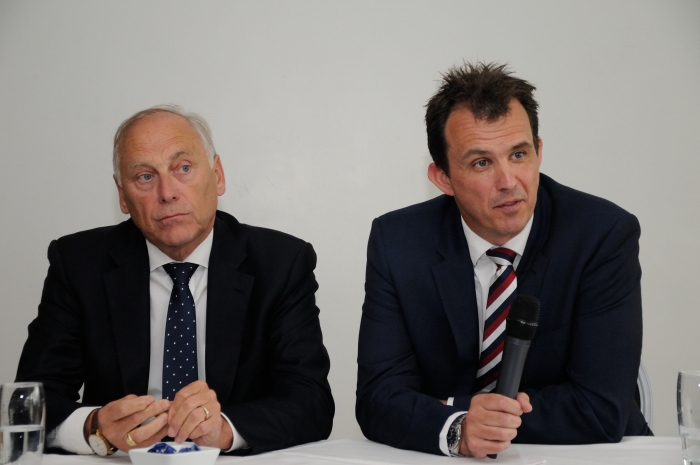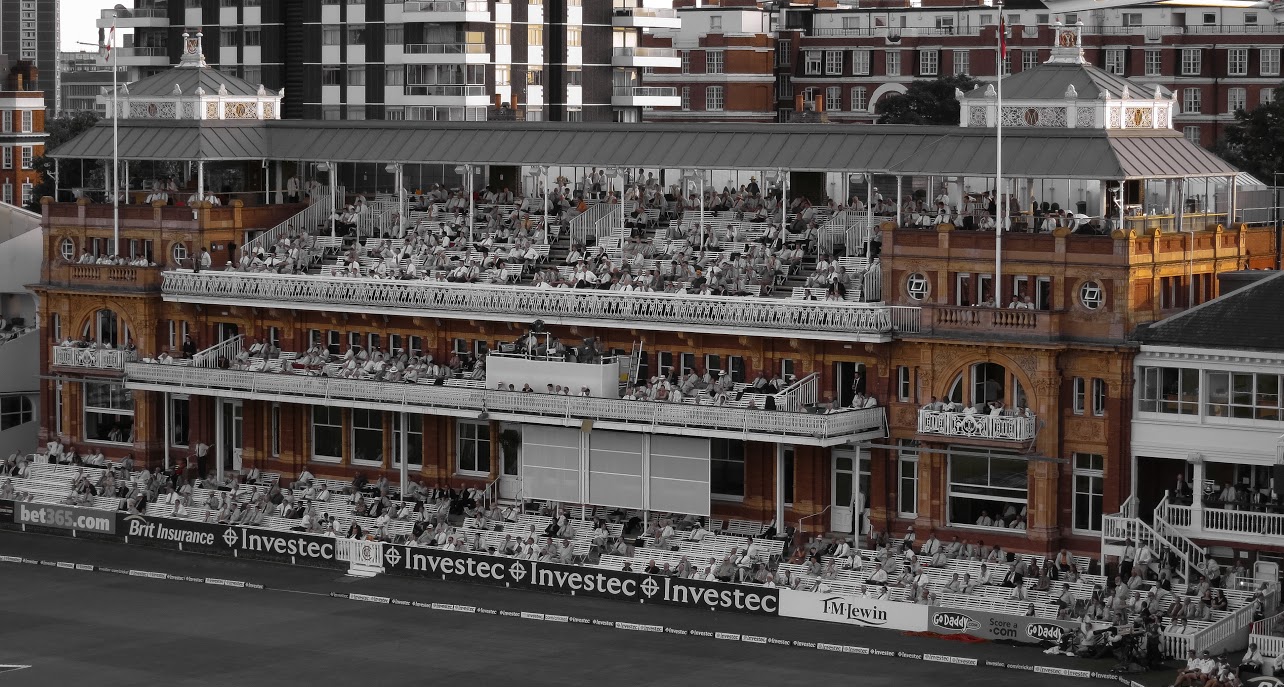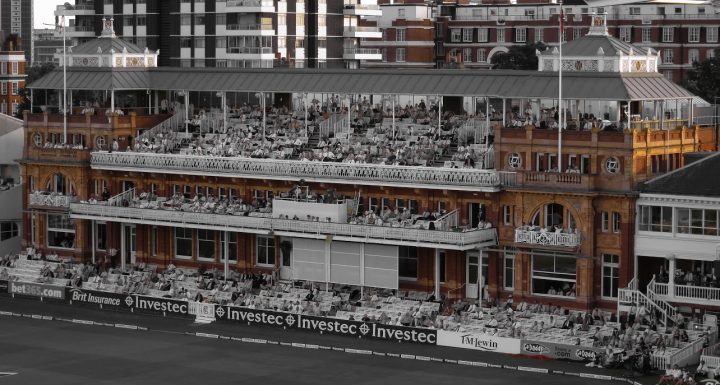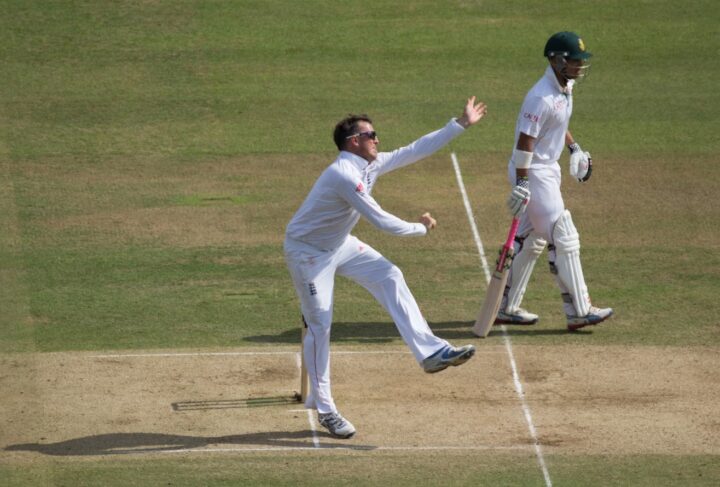Remember the term ‘fortress Edgbaston’? Well, the best way to undermine a stronghold is to chip away at its foundations until the whole thing collapses. Billy Crawford gets to the root of the problem …
Cast your mind back 16 years to September 13th, 2005. Thousands upon thousands of people lined Oxford Street and crammed into Trafalgar Square to greet the England cricket team. Such was the clamour for the national summer game that 20,000 people had been turned away from Old Trafford for the last day of the 3rd Test and record numbers of viewers tuned in to watch on Channel 4.
English cricket was on top of the world, the centre of the national consciousness.
Since that day, however, the ECB has set about the systematic destruction of cricket in this country. If that feels too strong a statement, then let us take a look at the evidence.
The last day of that Ashes series at The Oval was the final time that the England team played a home Test on free-to-air TV. Since that beautiful moment when Michael Vaughan lifted the urn on a warm September evening the national team has never been available for the whole nation to watch.
While it is true that the deal to sell the television rights to Sky was agreed at the end of the previous summer, the ECB could have easily anticipated the bounce in interest that was coming. At the moment the deal was signed England had just won 7 home Test matches in one summer. The national football team had just failed at another major tournament, Euro 2004 and the ECB’s new invention, the Twenty20 Cup, was proving a roaring success.
However, rather than see this as the beginning of English cricket reclaiming its place as our national summer sport and perhaps reaching heights of public interest not seen since the 1950’s, the ECB decided this was the best moment to place all home cricket behind a paywall. It was a staggeringly bad decision and it was motivated by the one thing the ECB is always motivated by, acquiring more money.
The ECB followed this decision by massively hiking ticket prices for home Test matches, to cash in further on the team’s popularity. A vast swath of cricket’s potential viewers were instantly priced out of attending or viewing the game. As a teenage boy growing up in a low income family, myself and my mother had always attended one Test match every summer. After 2004 we did not go together for another 11 years.
These short-sighted decisions, as well as a shocking lack of engagement with state schools, have led to English cricket becoming a sport for the elite. Of the 11 that won back the Ashes at The Oval in 2005, 8 were products of state schools. Last summer, against Pakistan at Southampton, England fielded an XI with only two state educated players.
When the ECB discuss inclusion and diversity in English cricket it is worth remembering these facts.
The chance to inspire the next generation through a successful England team would also be missed. Sadly, Andrew Strauss’ side, the first England team to ascend to number one in the world rankings, were never available to watch for the majority of the population.
Following the disintegration of this team, the ECB then set about, whether by accident or agenda, to do everything possible to make the England Test side less successful. 4-day cricket, the nursery for future Test players, was marginalised to the Spring and Autumn of the season to fit in yet more and more of the short form of the game.
This, as anyone who watches the Test side can see, has led to cricketers being picked for England who simply do not have the technique to survive in Test cricket. Jonny Bairstow, for instance, does not have a defensive game capable of dealing with the swinging ball. Dominic Sibley may be a successful player but he has one of the worst techniques of any opener England have selected.
4-day cricket has also been marginalised for spectators. The ECB regularly schedules Championship games during the week and outside of the school holidays, making it almost impossible for working aged people and young families to attend. It is hard to imagine this is accidental. We are incessantly told that prioritisation of short form cricket is needful because people are simply not interested in the County Championship anymore. However, this is a self- fulfilling prophesy. By pushing the long form game to the margins and making it unappealing and impractical to watch they have created a fall in spectatorship and viewership. It is then easy to claim that the Championship is in decline whilst obscuring the reasons for that decline.
By doing this, the ECB have created the rationale for their worst invention of all, The Hundred. I will not waste the reader’s time listing all that is wrong about this competition. If you have read this far then I will likely be preaching to the converted. All that is worth saying is that the ECB have underestimated quite how much they have alienated their core supporter base. The strength of feeling among fans of the game is something that the ECB clearly does not grasp. We have been treated with utter disdain by the very people who we trust to keep our game safe. The press releases and the quotes from the ECB and their minions that made it clear we are of no interest to them will not be easily forgotten. The comparison with football’s European Super League is very apt. We are cricket’s legacy fans and we are prepared to hold the ECB to account.

The situation that we find ourselves in is primarily down to the catastrophic mismanagement and staggering hubris of Colin Graves, the ECB’s former chairman and Tom Harrison, its current CEO. Between them they have achieved the destruction of English cricket with the same effectiveness that Shane Warne and Glenn McGrath once destroyed English batting.
They have squandered the ECB’s cash reserves on the hated Hundred with the enthusiasm and recklessness of a compulsive gambler at a Las Vegas casino.
While Graves is now gone, replaced by the thankfully more level headed Ian Watmore, Harrison sadly remains.
Recently he has overseen the disastrous rotation policy that destroyed England’s chances of a memorable series win in India. Let us be crystal clear about this, rotation was never primarily about protecting players mental health in a Covid bubble, it was about genuflecting to the IPL and the power of the BCCI. Players were openly rested from a crucial Test series for their country so that they would be fit and fresh to take part in a full 8-week IPL. Queen and country became subject to Kolkata Knight Riders.
Harrison’s pre-pandemic rumoured salary of £800,000 a year also sticks in the throat for supporters of counties for whom that amount of money could mean the difference between solvency and bankruptcy. Each county only receives £1.3 million a year from the ECB out of the current TV broadcast deal and this is barely enough for them to survive.
All of this is before we even begin discussing Harrison’s staggering mismanagement of the Ollie Robinson Twitter fiasco. By announcing a “zero tolerance policy” on any form of online misdemeanour, with no clarification of what that might constitute, Harrison opened up English cricket to the Pandora’s box of the easily offended. The Twitterati scoured the internet for anything that anyone in the game might ever have said that would be unacceptable in the modern age. Wisden even stooped to the depths of mining tweets made by players when they were still legally children. It is hard to believe that this witch hunt did not contribute to England’s pitiful performance against New Zealand at Edgbaston this week.
No support appears to have been offered for Robinson’s wellbeing either. Whatever one thinks of his teenage indiscretions, there has to be some level of support offered for the mental health of a young man thrown to the wolves by his employers. Protecting fragile people in the eye of a media storm is a lesson that our nation was meant to have learnt from recent events. Tom Harrison obviously has not heard of the phrase “be kind”.
The ECB are on dangerous ground with those of us that love cricket. It is worth remembering that in the same way that the “big 6” Premier League clubs may well have lost many of their fans for good if they had followed through with their ESL plans, the ECB may find that the loyalty of cricket’s public is not unwavering.
If they continue to marginalise the forms of the game that we love, treat fans with distain and contribute to weaker and weaker England teams then many of us will simply stop supporting.
We will still follow our counties and it is hard to believe we can ever truly turn our back on the England team. However, once true supporters become alienated it is hard to win them back and eventually this will hurt the ECB in the only area that they genuinely care about, their finances.
By the time they realise this it may already be too late. Change is needed now.
Billy Crawford









Have the ECB not studied demographics? All these baby boomers who remember the golden days of the county championship lasting all summer with the odd interruption for Nat West and B&H Cups and Sunday League are all around retirement age now. We’d much rather chill out with some first class cricket than go to these hundred games with coloured kits, flame throwers all around the pitch and batsmen’s scoring rates being more important than their averages.
Very well said. What’s even more galling is that Harrison & his cohorts hide in their ivory towers, avoiding all and any contact with the media, fans etc., who might, just might, be interested in some sort of explanation for all the folly.
Where is the accountability ? Where is the communication with the fan base, or – perish the thought – with County members across the land.
Who cares ? Certainly not the ECB. It really is the most gut wrenching situation.
Dobell pointed out how much Harrison avoids “fronting up” while Joe Root, what ever one thinks about what he says and there is some awful management-speak twaddle in it, does at least appear.
Last I heard, Harrison was off to the ICC where lack of media scrutiny (as DOAG revealed) is very much the S.O.P.
Well what an excellent piece Billy. It really sums up what a fine mess English Cricket is now in, and what most of us have been saying for a long time. I’m all for dismantling the ECB, restructuring and rethinking English Cricket and pensioning off the likes of that disdainful Harrison and all his crony ex banker mates to Outer Mongolia. As a supposed sport “governing body” it is as bad as it gets. I’d add too on how they virtually destroyed Durham DVD and got away with it. Problem is you can’t vote these people out anymore, time for the Terminator perhaps. As for supporting England, no I don’t anymore, in fact I’m gonna follow NZ, a place I used to live in. They are everything England are not. Sad but invetable now.
James is kindly going to put a short article on by myself in a few days that is very much related to this, and written from a fan’s perspective.
Very interesting listening to the last Wisden cricket podcast, where two of the writers explained their reasons for and against publishing the story. Both were fairly clear and forthright in their opposing views so it was good to hear them present both sides of that argument.
How do you know if the ECB have (or haven’t) offered Robinson any pastoral support?
I think the way that Vaughan’s position on this has changed. On TMS he was very critical of OR – unacceptable behaviour; should be banned etc., but when the news broke that 5 other players were being investigated his tune changed – this has gone too far etc. Could that be anything to do with the fact that OR is not managed by MV’s Phoenix Management company, whilst at least 2 of the 5 are ?
As has been said for a few years now professional sport is a business and follows the money.
The ECB has chosen to invest its efforts in promoting the white ball game, the incentives for our cash strapped counties who have to support facilities largely unused for 6 months of the year. The more tournaments there are the more chance to share the spoils, so it is no wonder the steady decline in batting and bowling standards in the less fruitful formats is continuing a-pace.
I thought Nasser’s post match comments were over the top in stating the obvious as coaches have clearly become what they would say is more immaginitive in their persuit if white ball success. The public too must take some of the blame as the football ground mentality of beer snakes, binge drinking, Mexican waves and boorish chanting, backed incidentally as ‘atmosphere’ by most of the pundits, is an increasing factor in test cricket, with crowds getting bored if runs are slow and wickets are few, making their own entertainment. Interestingly the one pundit expressing a negative sentiment about this was (Elvis) Swann, saying this was not to everyone’s taste. Ever tried watching a days test cricket in the Hollies stand. Impossible!
The general marketing of test cricket as ‘party time’ to attract bigger crowds is a significant factor. I know cricket goes on longer than other sports so concentration becomes a factor, especially if you’re not a big fan of the game and coming with your mates for the occasion. Live sport definitely has that buzz factor.
Marc,
If you want to go to Edgbaston for a day’s Test cricket you probably wouldn’t go to the Hollies anyway. However, it’s very entertaining and can be brilliant atmosphere when England are on top.
Also: Cricket needs the money. The counties need the money. The T20s do just that.
In my experience what goes on in the Hollies stand infiltrates to the rest of the ground and though as I said it’s ok in small doses it goes on for hours and bears no relation to what’s going on on the field. The last session is incessant as by then the barmy army are well oiled and in common with all drunks become louder, more repetitive and more tedious by the minute.
Great article, and resonates here in Australia where the Sheffield Shield competition runs on life support. It’s an irritant to cricket administration who seem to see only the Big Bash and in the long format only the Ashes and tours here (ever more frequent) by India. Greg Chappell who might know a thing or two recently put up what seemed a very worthwhile proposal for the Shield. Play the whole competition between August and November starting in the Northern Australia tropical cities of Darwin and Townsville and steadily push south as summer arrives. Players would get several months of concentrated long form cricket benefiting both the individual and prospective test players and everyone would be cherry ripe when the touring team arrived for the tests commencing in December. The “others” would equally be set for the mindless crash and bash through Christmas and the new year. Emerging “proper” players from January could form an Australia A team and do short tours to the sub continent, New Zealand and South Africa. Australia does next to nothing in the way of touring overseas, the last trip was to the 2019 Ashes (COVID has been a brilliant excuse) and test matches in the West Indies may never happen again. Australias obligation to help cricket develop in the struggling nations seems non existent. But Chappells plan was long on merit however short, obviously, on lucre, so it was too easy for administration to nonchalantly flick it over square leg and into the long grass beyond the boundary.
YES.
Good article, Billy. You’ve hit the nail squarely on the head there. You only have to look at Harrison’s background to understand the direction of travel. It’s extraordinary how people come into senior positions on mega salaries at organisations of which they have no direct personal experience and default to making them into organisations which fit their own previous experience, often without realising it. That’s what Harrison has done (and, incidentally, what is happening at John Lewis).
A few of the guilty men who’ve not been named: the 2004 decision was taken by McLaurin who seems something of a forgotten figure; Giles Clarke spent a fortune to keep cricket off mainstream TV when it was under review; it was Strauss who made white-ball cricket our “priority” and those who were too delighted that he’d slayed the evil KP never answered when it would stop being a proirity (answer: never – as was always patently obvious). Strauss also made his lack of interest in playing the “lesser nations” quite explicit.
I can’t be bothered to go over more about the ECB again – so here are some thoughts about rotation. Obviously rotation isn’t to blame for England’s defeat given NZ had rotated out even more players. Stokes, Archer and Buttler would seem certainties if England had their strongest team out (although the latter two have Test-level issues). Any number of seamers also have a case – most obviously Sam Curran or Woakes (who has apparently bowled 21 overs in the last 9 months). It’s the first time I’ve seen Stone and he looks a clone from the Tom Curran-Jordan Loughborough-induced bowling action. Also, what happened to playing only one of Broad or Anderson at a time? Is that only for away Tests? The likes of YJB and Ali have been ruined and would have been first-team choices if properly handled over the last few years. Might it also be noted that Ross Taylor is nearly a year older than Alastair Cook? England seem weirdly accepting of uninjured players retiring before even their mid-30s. Taylor had a brief disastrous stint in a captaincy role to which he was ill-suited but NZ admitted their error rather than torching the team. Taylor has played fewer Tests than Cook but he’s played a massive number of ODIs.
On the subject of the batting, the new line seems to be “Kane Williamson averaged such-and-such at that age”. Well, yes, Williamson averaged below 40 between his 4th and 34th Tests (even briefly below 30). However he had scored a century away in India aged 19, had been the outstanding age group performer on his way up, obviously was technically very sound and he offered something in the field. Do Crawley, Lawrence and Pope tick such boxes? Pope probably looks closest but even then his century was against a wreck of a SA team.
Something else about the batting that struck me watching the second innings’ collapse – Root used to be brilliant at coming in with the team in trouble and shifting the pressure by scoring quickly (Cardiff and TB in the 2015 Ashes come to mind). Now he seems to get becalmed. This may partly be down to bowlers bowling better at him but it’s hard not to feel it isn’t the responsibility of being captain at work. If Burns can cement his place in the team it may be time after the Ashes to say “thanks Joe – time for a different path”.
Silverwood remains a major worry. Did he get lucky with Simon Harmer?
Yes, but … nearly all you say there applies to NZ too. No free to air, Test Cricket and 4 day domestic matches fit in around the short forms. Players’ calendars fitted around IPL. And so on. So what’s the difference?
Partly it will just be plain fortune – NZ fans find it hard to cope with our team winning because we have a strong cultural memory of embarrassing failure. And now we have a crop of all-time greats in one team. Partly that’s luck, so I think England shouldn’t get too depressed.
Having some great players at the top of their game makes it easier for others to perform (hence the huge pressure on Root, whereas Williamson has plenty of options when he falls short in runs)
But that’s only part, and probably a minor part. One thing we like about the current team is they seem to have patience with players, giving them time to learn the game at international level. Henry Nicholls a case in point – he’s the ultimate unsung hero and team man (did you know he’s the 8th ranked Test batter in the world? Not even many Kiwis do). The key with him was he was given a lot of time to settle in. Easy when you have the others performing, but faith must help a batter’s state of mind and confidence?
(Why not have Eoin Morgan bat in the Test Team?)
Thank you, Billy (and those who have commented) for saying exactly what real cricket supporters have been muttering about for years. You can decide for yourself whether the ‘real’ applies to the cricket, or to the supporters. Are the drunken morons in the Hollies Stand supporters? Is the guy at Old Trafford who told me to F off home, Yorkshire scrum, a supporter? I was sitting with a bunch of Lanky friends at the time, and the comment was not aimed at me specifically, but I still felt it personally. It was shouted many times by a fat drunk from the hotel balcony. This is not ‘banter’.
These sort of people are being actively encouraged by the ECB. Is money so important you sell your soul?
Of course it is, say Giles, Graves, Harrison…and indeed Vaughan.
Excellent piece. I suspect the ship’s sailed now – it’s been sailing for close to two decades now. The management will reap what they sowed before getting back on equal footing in the distant future. I just suspect the repercussions will be faced by the LOI teams as well, if things keep going on this way.
We shouldn’t overlook the achievements of the ECB. In the early 21st century they have increased the elitism and perceived exclusivity of cricket. That takes some doing! The message to all aspiring batsmen from state schools – your chances of representing your country in test cricket are practically nil.
” the ECB have created the rational for their worst invention of all, The Hundred” – typo!
The word is ‘rationale’ and that would be OK.
‘Rational’ implies thoughtful and well structured thinking, looking at outcomes and possibilities …. ah, no, you have it right.
The ECB has been rational in its rationale -more money for the ECB, more shopping trips – sorry meetings – in Dubai.
Anyone for a (sponsored?) G&T whilst these chaps are playing cricket?
Mr Crawford, thank you for a wonderful article. Hitting the point on so many levels. I produce a regular cricket newsletter that is sent to 8,000 subscribers. Could I have your permission to reproduce your article in full, of course I will give you the necessary accreditation.
I look forward to hearing from you
Bill
http://www.wisdenworld.com
http://www.wisdencollectorsclub.co.uk
Graham Thorpe finds the solution to England’s batting woes – it’s The Hundred!
“I hope what it does is allow them to free up and enjoy their cricket, help them to relax. Free up the hands and the arms but [while] being able to adapt to each form of the game. I hope it gives them a mental break and the ones who come back into the Test squad come back with that hunger and desire to be better.”
Has anyone watched Conway compared to England’s batsmen and though the latter’s comparative ineffectiveness is due to a lack of freedome in the hands and arms?
Most everyone has a lot of affection for Thorpe from his time as a player – but what exactly is he doing except being an ECB management lackey?
Some of these former England stars are making themselves look pretty silly with their support for this H******d farce.